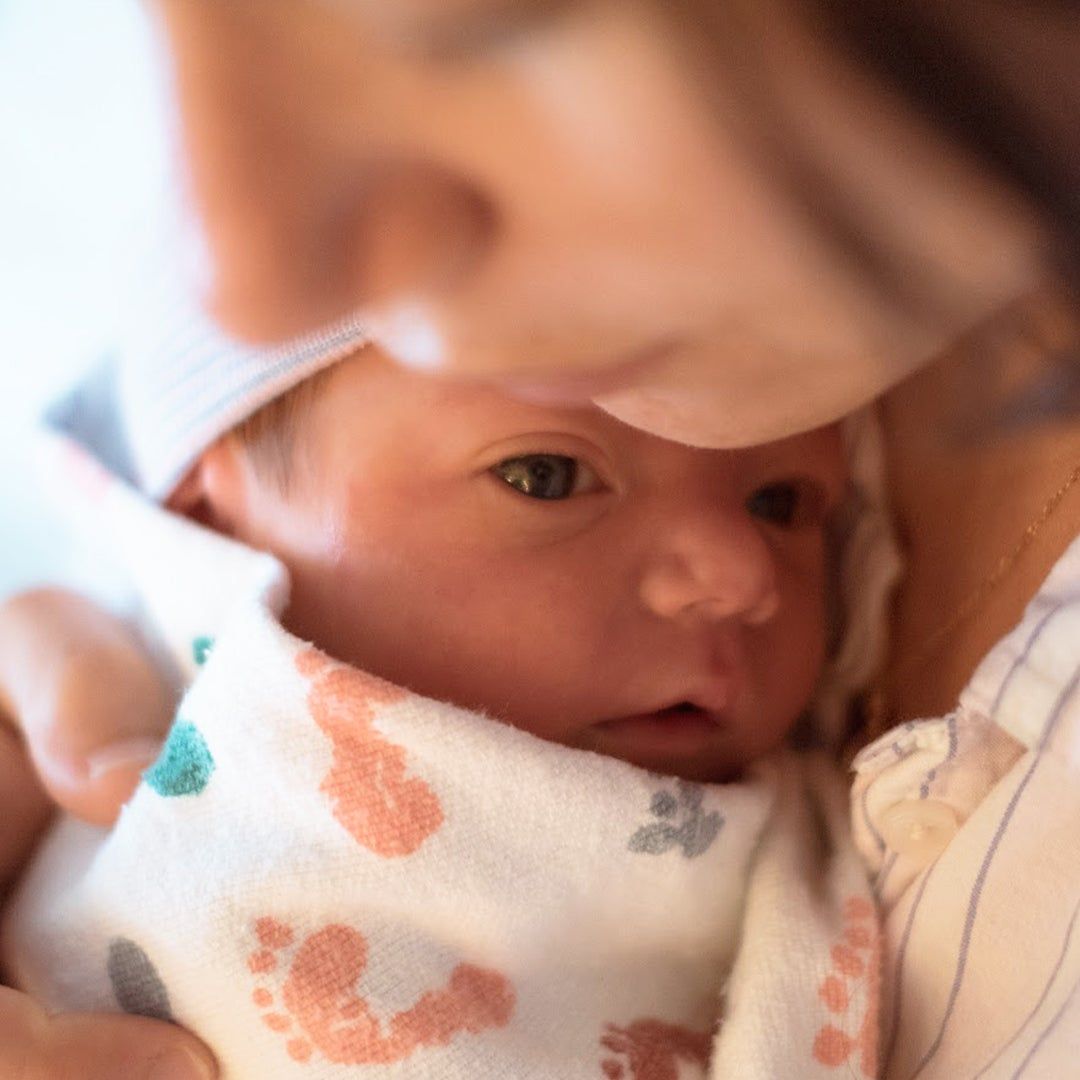
Birth Stories
A Tale of Two Birth Stories
From a 33 hour labor that left her feeling disoriented and alone to a mercifully short and blissed out love fest, the births of Alexandra Brown's first and second daughters could not have been more different. Here, the writer reflects on those experiences, how they impacted her bonds with her children and the guilt that can come when things don't go as planned.
- Written By
- Alexandra Brown
“Do you mind if we turn off the Ravi Shankar?” one of my labor and delivery nurses gently asked. We had listened to the hypnotic, rhythmic sounds of the sitar on Ravi Shankar’s Living Room Sessions Part One about 15 times. To her credit, the nurse had kindly tolerated this, but at the hour-30 mark of what would ultimately be 33 hours of labor, she had clearly reached her threshold with my musical choice. I nodded and resumed focus on my seemingly relentless contractions. They had been coming fast and furious for hours and hours - two minutes long, one minute in between. Yet here I was, still stalled at seven centimeters dilated, stuck in labor limbo and feeling unable to move forward. I remember dimly thinking that this was my new normal, and I would be in labor forever, my baby hanging in the in-between while I lived a life of never-ending pain. These are the types of thoughts a person can have during labor, and mine had been long, giving me plenty of time to question my reality and birth plan choices.
I can belabor (pun intended) the details of the next three hours, but long story short, I ended up getting an epidural at hour 32, thinking why didn’t I get this HOURS ago and falling asleep for 45 minutes while I finished dilating. I didn’t push for long thankfully but our daughter, Emma, had to be vacuumed out when her heart rate started to drop due to the sheer exhaustion of our mutual laboring. She had some minor breathing difficulties when she first came out, so she was swiftly whisked away after what felt like a millisecond of skin-to-skin, leaving me numb, both literally and figuratively, and completely disoriented. By the time I held Emma two hours later, I remember thinking, Who is this baby? And where did she come from? My birth had gone from so intensely in-body to so starkly out-of-body in a matter of minutes, and I was left emotionally reeling. I was told I would feel an immediate and intense bond to my new baby, but when that didn’t happen, the isolation and self-loathing flew in with an unexpected ferocity. I had never felt so confused and alone.
This was not my birth plan, and I have since learned that many other mothers have felt the same deep sense of disorientation and disappointment when things don't go as planned. But I still felt like a failure beyond measure. I had wanted a “natural birth,” at least in the non-drugs sense of the phrase, and had been heavily influenced by the cultural “norms” of stigmatizing epidurals and instead relying on my body to know exactly what it was doing. My ever-supportive husband and I made a birth plan that consisted of dialed-in mood lighting, animalistic deep breathing exercises, partners yoga moves, a “power music” birth soundtrack (insert Ravi Shankar) and even an aromatherapy diffuser. We took all of the hours of birth classes that we could. We were beyond prepared, but what we weren’t prepared for was the reality of being unprepared no matter what.
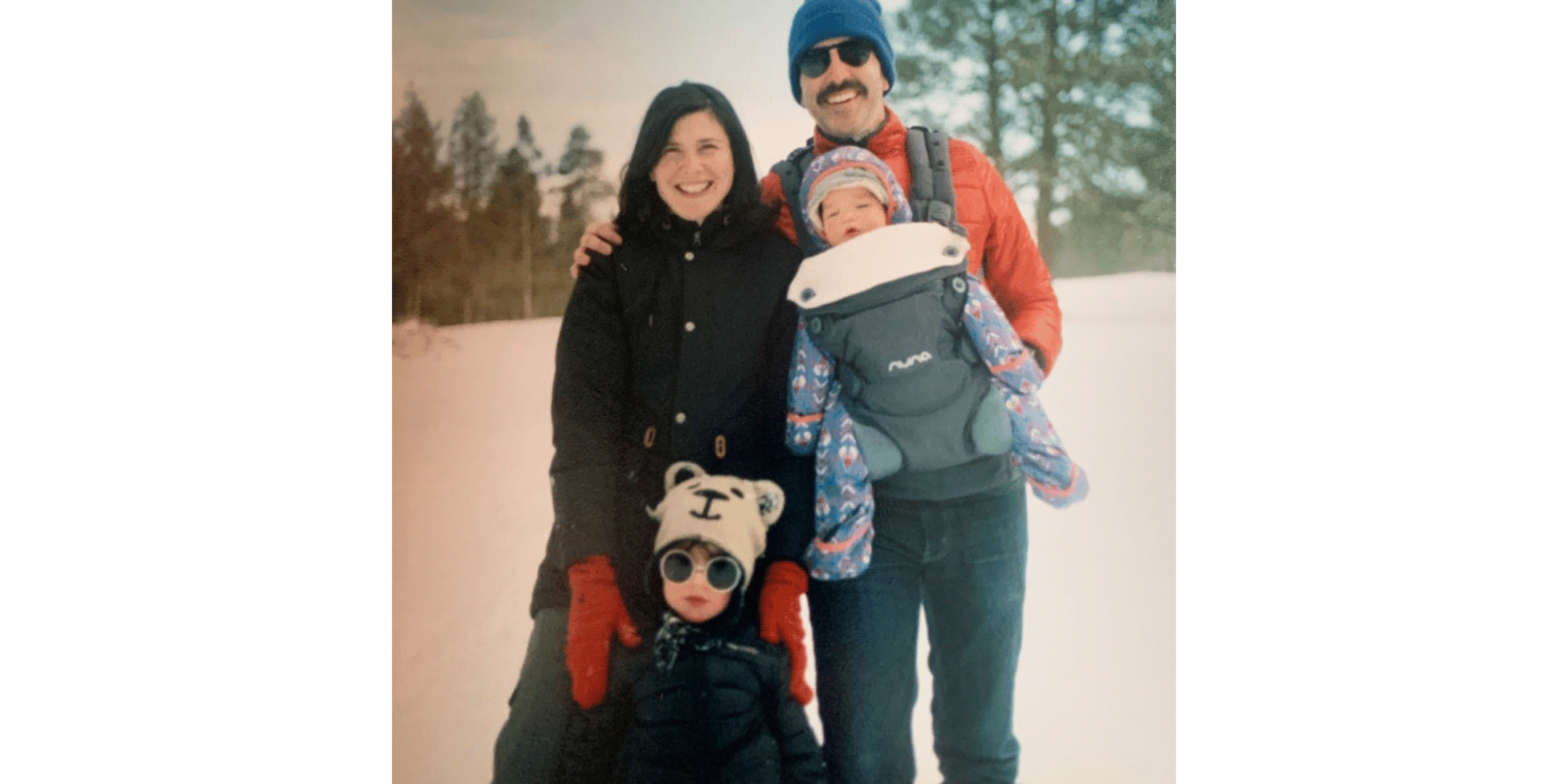
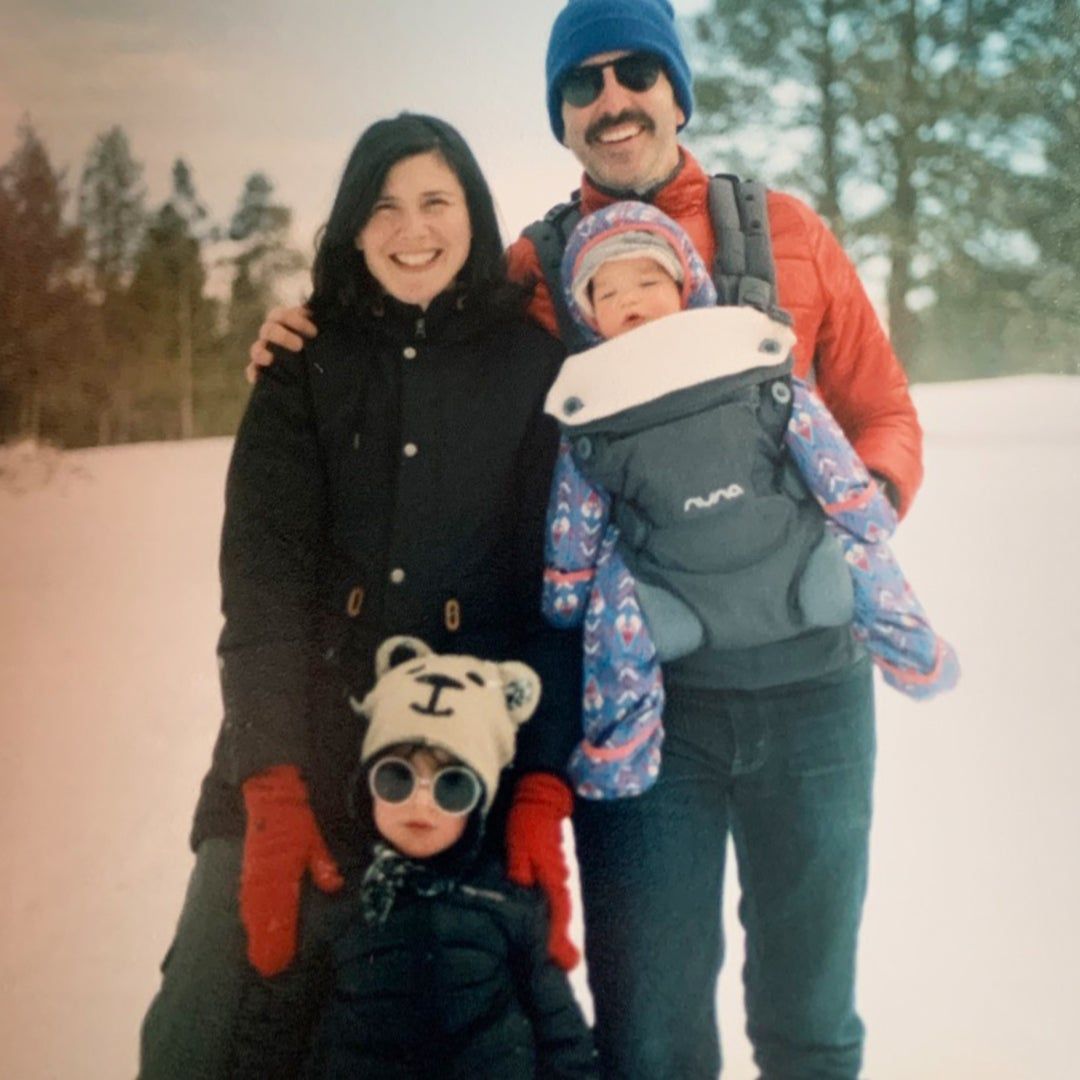
Fast forward three years. We were expecting our second child and preparing for another birth. Things were, not surprisingly, different this time around, not even taking into consideration the context flip of the pandemic. This time, my plan was drastically different: I decided to schedule an induction and have an epidural as soon as possible. Even with the chorus of voices telling me the second labor would be much easier, I remained skeptical after the intensity of my first. The day before my induction, I went in for my final check and had the preparatory catheter inserted, with the assurances that “hardly anyone goes into labor from these” and that it would make my induction the next day smoother. Once again, my body had different plans because that evening, I went into labor and fast. As my husband was unhurriedly packing himself a bag of nuts for an additional snack at the hospital, I was roaring like a bear and trying not to push in the driveway. He continued to have a laid back attitude on the drive to the hospital, reminding me that things seemed to be progressing quickly the first time when they actually weren’t, but his attitude shifted when we rolled up to the nursing station, me still roaring and trying not to push, and a fleet of staff swarmed the hospital room. Turns out I was already eight centimeters dilated. My husband and I looked at each other in shock, and I screamed “I WANT THE EPIDURAL!” Thankfully, I got my drugs, and Tatum was born shortly thereafter. Her active labor was a mere three hours.
"People talk about mom guilt all the time, but birth story guilt is a topic still pushed under the rug, swept away for another time."
After Tatum was born, she peacefully laid on my chest for two hours before the nurses even bothered us to take vitals. We were mutually blissed out, and the bond I felt was so pure, so intense, so real, I couldn’t believe it. There was such an overwhelming suffusion of love, and I could practically see it flowing between us. This is what it’s supposed to be like, I remember thinking.
In the weeks after Tatum was born, the guilt I felt as a result of the differences in my births, and the subsequent differences in my initial bonds to my children, was real. I kept thinking Emma had gotten the short-end of the stick, like I had let her down by making the “wrong” choices for her birth when I had made “better” ones with Tatum’s. With my first birth, I logically understood what well-intended advice givers meant when they emphasized how even the best-laid plans could go awry, but it took my second birth for me to emotionally embrace this. As a result, my postpartum time with Tatum was so different, and it was both wonderful and sad given the always present contrast between the two.
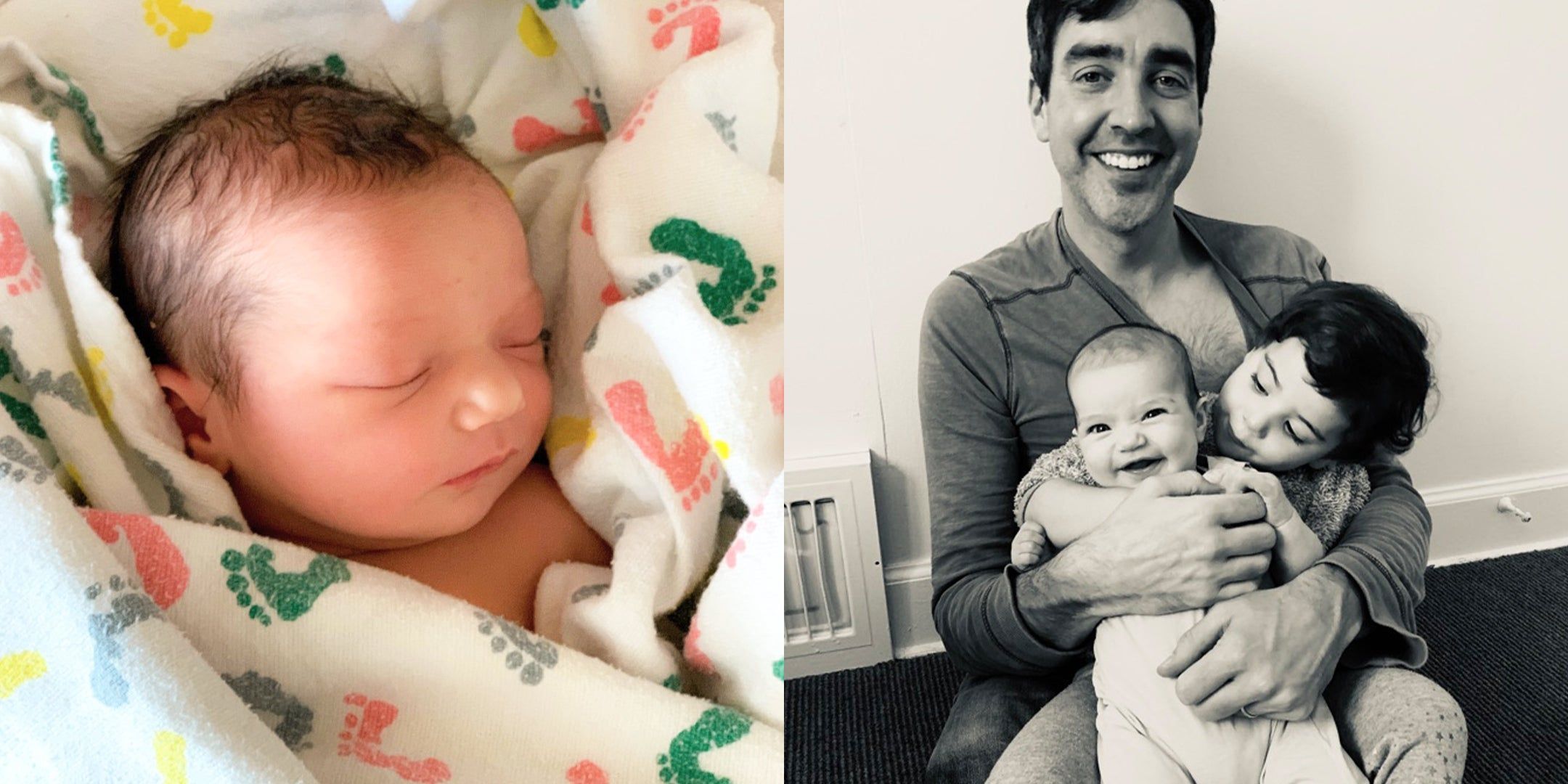
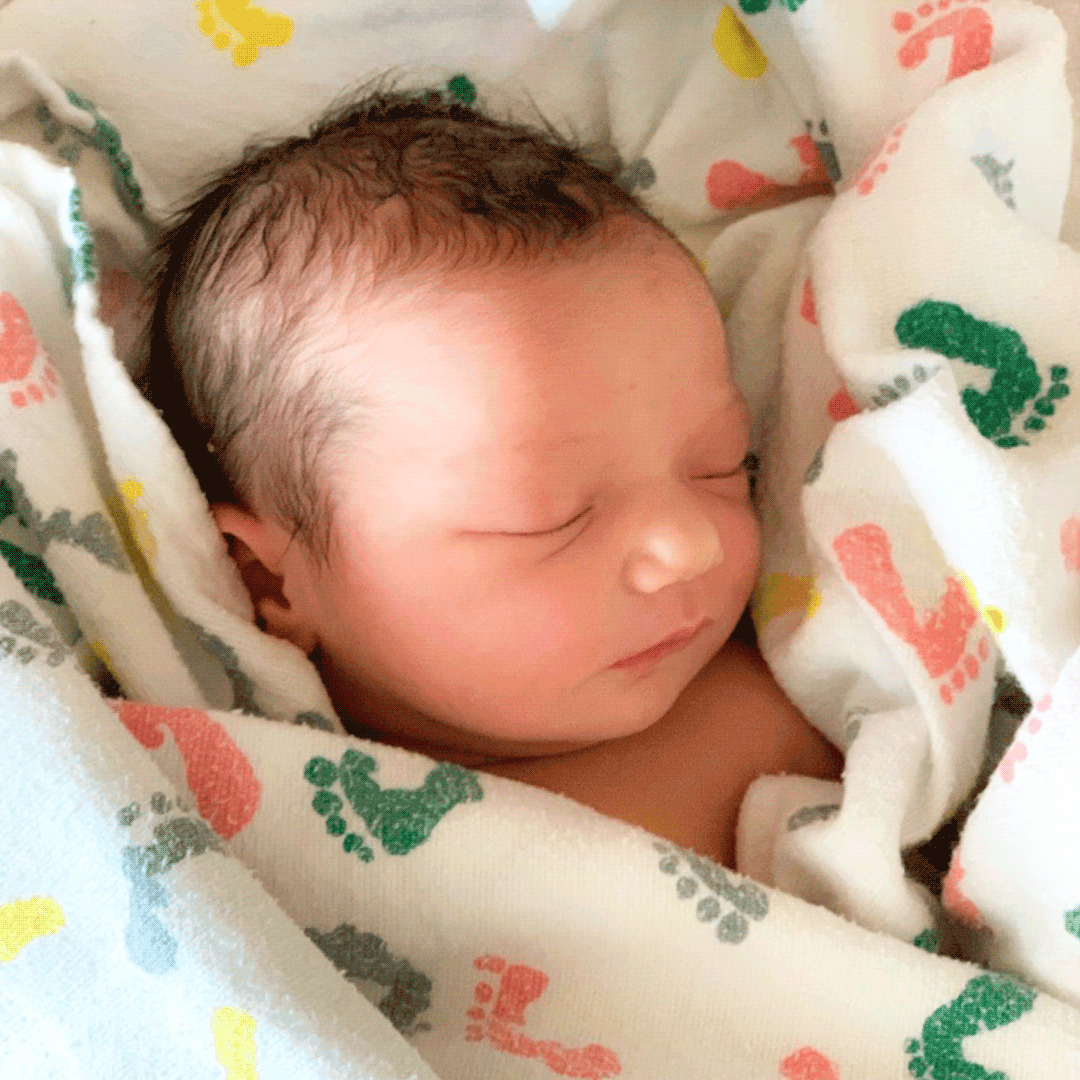
As the months since my second birth have unfolded, I have begun to process this disconnect - the inherent inequality of these two very different experiences - but the guilt has lingered. People talk about mom guilt all the time, but birth story guilt is a topic still pushed under the rug, swept away for another time. I wish this weren’t the case, which is why I’m sharing this story now.
I worry if Emma will feel like I loved her less immediately, whether Tatum and I will always have a better bond. What if my daughters will somehow know? (Even worse, what if they read this piece???) These are questions I ask myself, and questions I don’t have the answers to, apart from beginning to accept that there are no right or wrong birth stories, as there are no right or wrong birth plans. And what I confidently know now is that even though the stages were set very differently for my two births, these differences didn’t make or break my love for my children.